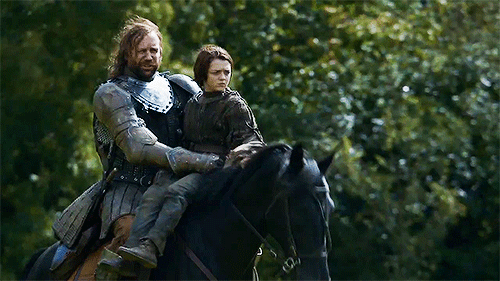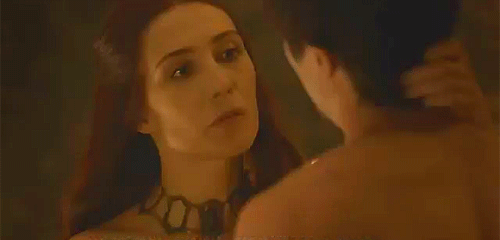Monday, May 20, 2013
Emotional conviction
There are a couple broad methods of storytelling. One of them is plot-driven. The story itself is the main focus and the characters are there largely to enact it. Isaac Asimov's writing is a good example of that. Asimov had grand ideas. All he needed was a couple people in a room to elaborate upon them and occasionally he'd throw in robots and a starship or two. The other method is character-driven. The story is essentially about a person or people and how they interact with the world around them. Typical superhero comic books (and their associated films) are the most obvious example of that method. The story surrounding the Incredible Hulk is the story of how he interacts with the world in both his Banner/Jekyll and Hulk/Hyde forms and how that creates problems for himself and those around him.
A Song of Ice and Fire, like many epic works, moves past that separation and has created a story that is both beyond the control of its many characters and almost wholly driven by them. In that sense, while it may be a good example of both a plot-driven and character-driven story, it still trends toward the latter, as much time is spent showing just what kind of impact world events have on the various people involved and the emotional consequences thereof. This episode was a prime example of just that.
From the opening scene, where we see that Arya's occasional loss of control of her emotions may actually have made her situation worse if she were able to kill the Hound, to the episode's centerpiece, the wedding of Tyrion and Sansa and the tangle of emotions that flows throughout the palace, we see that emotional responses not only continue to define these characters but also tend to drive the story itself, outside of seemingly emotionless entities like the Other. There are forces at work that don't depend on either our cast or their response to the good and bad things that happen to them, like the Walkers, but lust, desire, honor, and anger tend to drive most things that are taking place here, whether it's for power, money, or sex, or some combination thereof.
Daenerys' drive for power places her in a situation where she feels compelled to try to make deals with the Second Sons mercenary company. At the same time, Daario Naharis is overcome with lust for Daenerys herself and uses that to take control of the company (although why the Stormcrows became the Second Sons here, I'm not quite sure, especially given the final scene of the episode, where crows figure quite prominently.) Melisandre uses lust to gain the blood of Gendry for Stannis' own lust for power, but Stannis feels honor-bound to the Onion Knight to free him and keep him on as an advisor that might serve as a brake to the Red Woman's love for her god which is doing nothing but serving Stannis. Are these events part of the overall plan that Martin had for the story or are they natural outgrowths of the characters themselves (e.g. the author acting as interpreter and conveyor of the way these wholly formed people would act)?
Again, the centerpiece is the wedding and its aftermath. While Tyrion and Sansa's scenes may have been poignant and/or served as the backdrop to emphasize things like Joffrey's pettiness and Tywin's frustration, I think the best scene of any of those assembled around the proceedings was that of Cersei and Margery walking through the Great Sept arm-in-arm while they threatened each other or reacted to said threats as they kept up the public mask the whole way. This is a great example of a scene that doesn't have a great deal of story attached (not like discovering the effect dragonglass has on an Other, for example) but which has an enormous amount of weight hanging off of it as you observe the players maneuvering around the board of the game. This is to not even mention the blizzard of emotions going through Lena Headey and Natalie Dormer's eyes as they move along.
To draw a direct contrast with another series and another new episode tonight, the latest offering for Mad Men had me thinking that it was just 60 minutes of watching characters (mostly Don) gyrate through their emotions and basically leave any sense of story behind. The drugs, the weird introduction of the thief, the flashbacks to his first time; all of that didn't really tell a story but spent a lot of time wringing emotions out of a character that hasn't been famous for them. The episode was conflicted and not the best that they've done. On the other hand, "Second Sons" drove the story forward even as the screenplay focused on the emotional turmoil and the reactions of these characters to that turmoil. I think GoT was better served in that respect and why it remains the stronger story (and better series) overall at this point.
Lines of the night:
"So quit trying to bash my skull in and we might make it there in time for the wedding!" - The Hound, always the pragmatist.
"It's hard to collect wages from a corpse." "A man who fights for gold can't afford to lose to a girl." -
Daenerys picks up strategy as quickly as she does languages.
"Mothers and fathers made up the gods because they wanted their children to sleep through the night." - Ser Davos with the essentially Hegelian philosophy (i.e. man created god in his own image.) Watching Liam Cunningham deliver lines with Davos' customary restraint, especially in the face of the man to whom he's devoted his life, is great fun.
"You won't be a prisoner after tonight. You'll be my wife." - There's a softball for many married couples, right over the plate...
"Of course, ambitious climbers don't want to stop on that second rung." - A great scene and why Lena Headey makes a better Cersei than many expected. And, of course, probably the best line of the episode: "If you ever call me 'sister' again, I'll have you strangled in your sleep." BAM!
A couple side notes here: Diana Rigg was once again knocking it out of the park, as she attempted to detail the complex relationships between the soon-to-be-married brothers and sisters of Houses Tyrell and Lannister. Playing the doddering old woman while carefully watching Cersei's reaction is just priceless. Also, while there have been many mentions over the past few years about the necessarily smaller crowds and events than the story originally called for (i.e. the tournament of the Hand in season 1 should have had thousands in attendance for the joust) as a consequence of cost and logistics, it's interesting to note that, in the books, Tyrion and Sansa's wedding is lightly attended and by a very unenthusiastic crowd. So, for once the practical matters actually served the interests of the story. We finally get to see the High Septon, too.
"I don't understand. This doesn't seem very religious." - Gendry, trying to understand the strange practices from across the Narrow Sea. Martin's knowledge of history perhaps betrays him here, as sexual mores in the east from Roman times forward were far more flexible and accepted as part of life than they were in the west.
"Come fight death with me." - Melisandre with the double entendre (alliteration joke!) Next time a woman drops her cloak and tells me to fight death, I am so there. Has to be said, though, that it's weird even in a situation like this that full frontal on the men is still not permitted, but the women can drop their kit at any moment. Why, for that matter, is full male nudity OK in the scene with Loras, but not with a woman? Speaking of sexuality being constrained...
Tyrion:
"Drinking and lust. No man can match me in these things. I am the god of tits and wine!"
"I vomited on a girl once in the middle of the act. Not proud of it. But I think honesty is important between a man and his wife, don't you agree?"
"If my father wants someone to get fucked, I know where he can start!"
"And so my watch begins..."
Still one of the best characters in the story, even when things are supposed to be mildly tragic, and the toast to Loras in the balcony, as trapped in circumstance as Tyrion is, was excellent. Also, Shae's expression at the unspoilt bedsheets was great.
"I'm the simplest man you'll ever meet. I only do what I want to do." - Daario Naharis, the Epicurean; the perfect new character for an episode driven by emotion.
"Sometimes do you talk fancy on purpose to confuse me?" - Gilly exploring a whole new world. This scene, while somewhat overlong, was well done from a dialogue standpoint, as Sam elaborates upon naming conventions and their personal weight. We also finally get to see another weirwood tree.
Labels:
critiques,
game of thrones,
tv
Subscribe to:
Post Comments (Atom)






No comments:
Post a Comment
Note: Only a member of this blog may post a comment.